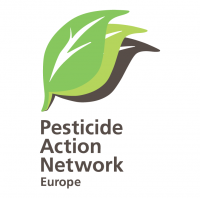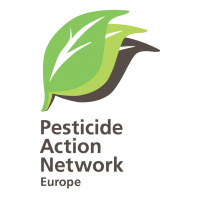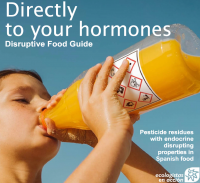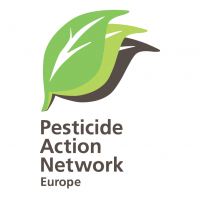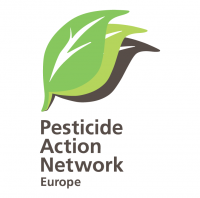Press releases
Today, the Environment Committee of the European Parliament strongly challenged[1] the head of the pesticide unit from DG Sante and European Food Safety Authority’s (EFSA) head of pesticide unit for the untransparent and unscientific work they are carrying out to water down the protection of bees against pesticides in Europe.
PAN Europe carried out an investigation to find out whether pesticides banned in the EU [according to 1107/2009 and PIC legislation1] are detected in food sold on the EU market, using the EU official food pesticide residue monitoring data.
On 16 and 17 July, a standing committee meeting on phytopharmaceutical products is gathering in Brussels to decide on the future of the so-called EFSA Bee Guidance Document (BGD), which is intended to protect honeybees, bumblebees and wild bees against the toxicity of pesticides.
Today, PAN Europe's Spanish member Ecologistas en Acción presented its report "Directly to your hormones. A disruptive food guide" (Original title: Directo a tus hormonas Guia de de alimentos disruptores). The report analyses the food pesticide residue data that the Spanish Agency for Food Safety and Nutrition (AESAN) published this year based on the data delivered for the EU pesticide residue monitoring programme in food for Spain, for 2018.
Today, the European Court of Auditors released a report(link is external) [1] on the European Commission’s actions to protect wild pollinators. Once again, the report highlights a lack of commitment and consistency on the part of the EU executive, and how environmental protection ambitions are being stifled by the will to maintain an intensive model of agriculture, highly dependent on pesticides, which pose a serious threat to both human health and the environment.
PAN Europe welcomes today’s publications by the Commission, which, on World Bee Day, bring the protection of biodiversity as well as of public and environmental health to the forefront of European food policy, and commits to taking action to reduce chemical pesticide use in Europe under its Farm-to-Fork and Biodiversity Strategies.
Fifteen years have passed since EU law (EC 396/2005) called to evaluate the impact of pesticide mixtures on human health. To our disappointment EFSA’s pilot studies presented yesterday seem unfit for purpose to ensure that pesticides mixtures cause no impact to human health and particularly to the most vulnerable groups in our population.
"Green recovery" from COVID-19 crisis demands healthy and sustainable food system
One third of the food consumed in Europe contains residues of two or more pesticides, according to the annual report published by the European Food Safety Authority (EFSA). For certain foods the situation is even worse, since over 65% of the popular summer fruits tested (currants, strawberries and grapes) were found to contain pesticide “cocktails”.
The Laboratory of Pharmacology and Toxicology (LPT) Hamburg that was found recently to commit fraud in a series of regulatory tests had also carried out many of the tests in the glyphosate re-approval dossier in 2017, new study reveals.
